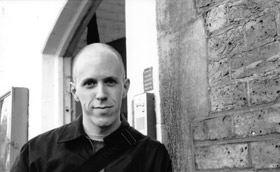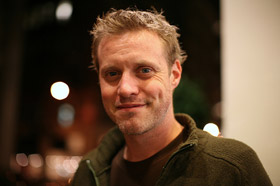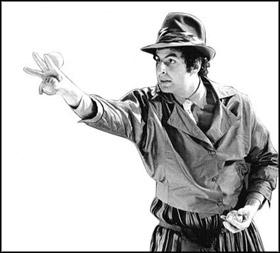I’ve always written, but it wasn’t until I started approaching writing as a full-time job that I really felt any mastery of it. Sometimes I’m an artist, but mostly I’m a craftsman. I write for very specific purposes, and I can sort of switch it on and off. That came with experience.
I think “productivity” is a pretty limited concept. If you’re writing a lot, but you’re writing crap, that’s not particularly helpful. I think what I hit in my early-to-mid 20s was a sweet spot between Getting Stuff Done and Getting Stuff Perfect. My first drafts are pretty strong. They feel like the final movie. Some writers do what they call a “vomit draft,” which is long and messy, then edit it down. I don’t. I write the script that could be shot.
I labor pretty hard over each scene in its first incarnation. I play the entire scene in my head, in a constant loop, until I really feel I know it. Then I do what I call a “scribble version,” which is a very quick-and-dirty sketch of the scene, handwritten, which would be indecipherable to anyone but me. Then I write up the final scene from that.
In terms of the number of scripts with my name on them, that really comes from picking projects carefully. The frustrating thing about screenwriting is that you can spend a year working on a project that never gets made, and it’s like you never wrote it. I like to say that my favorite genre is, “Movies that get made.”
What drew you to screenwriting, as opposed to other kinds of writing?
I didn’t know what screenwriting was until fairly late in college. That was before the Internet, so the only scripts you could find in Des Moines, Iowa, were the occasional screenplays that were published in book form. I remember reading Sex, Lies and Videotape and being awestruck by how closely it matched the finished movie. It sounds naive now, but I really didn’t understand movies were written.
The screenplay form didn’t come naturally. I’m not sure it should; it’s pretty artificial and unlike conventional writing. The closest equivalent is certainly the stage play, which is pretty much just dialogue. The screenplay has evolved into this strange beast that’s meant to be a blueprint for the entire movie — not just what the characters say and do, but how the film is supposed to look and feel and sound. Most of the time I love it, but it has very frustrating limitations. I get sick of writing in the third-person present tense. I yearn to write about scents and textures and the inner thoughts of characters. One of the reasons I keep up the blog is that it’s a chance to write in my own voice rather than the detached, omniscient “screenplay voice.”



